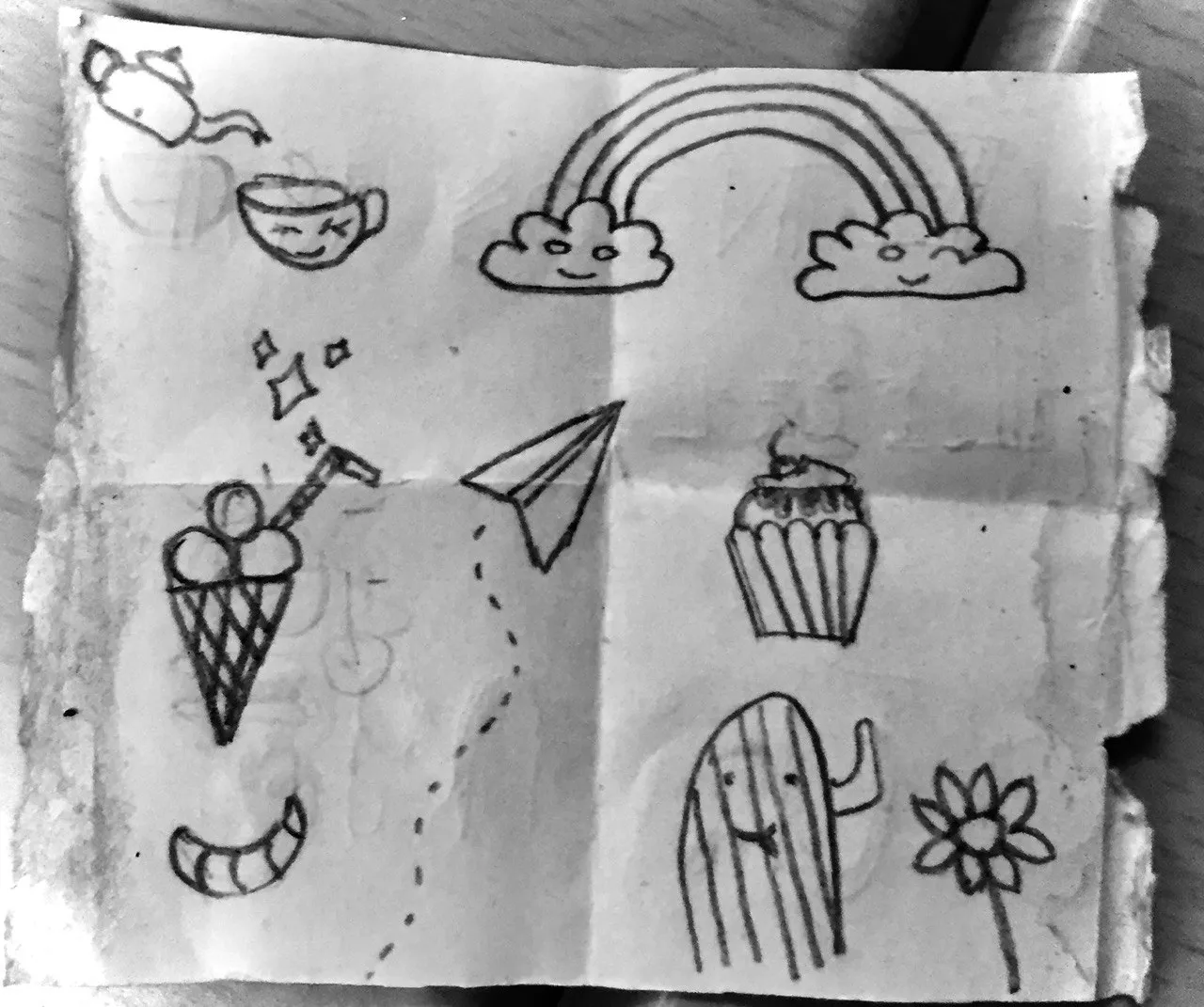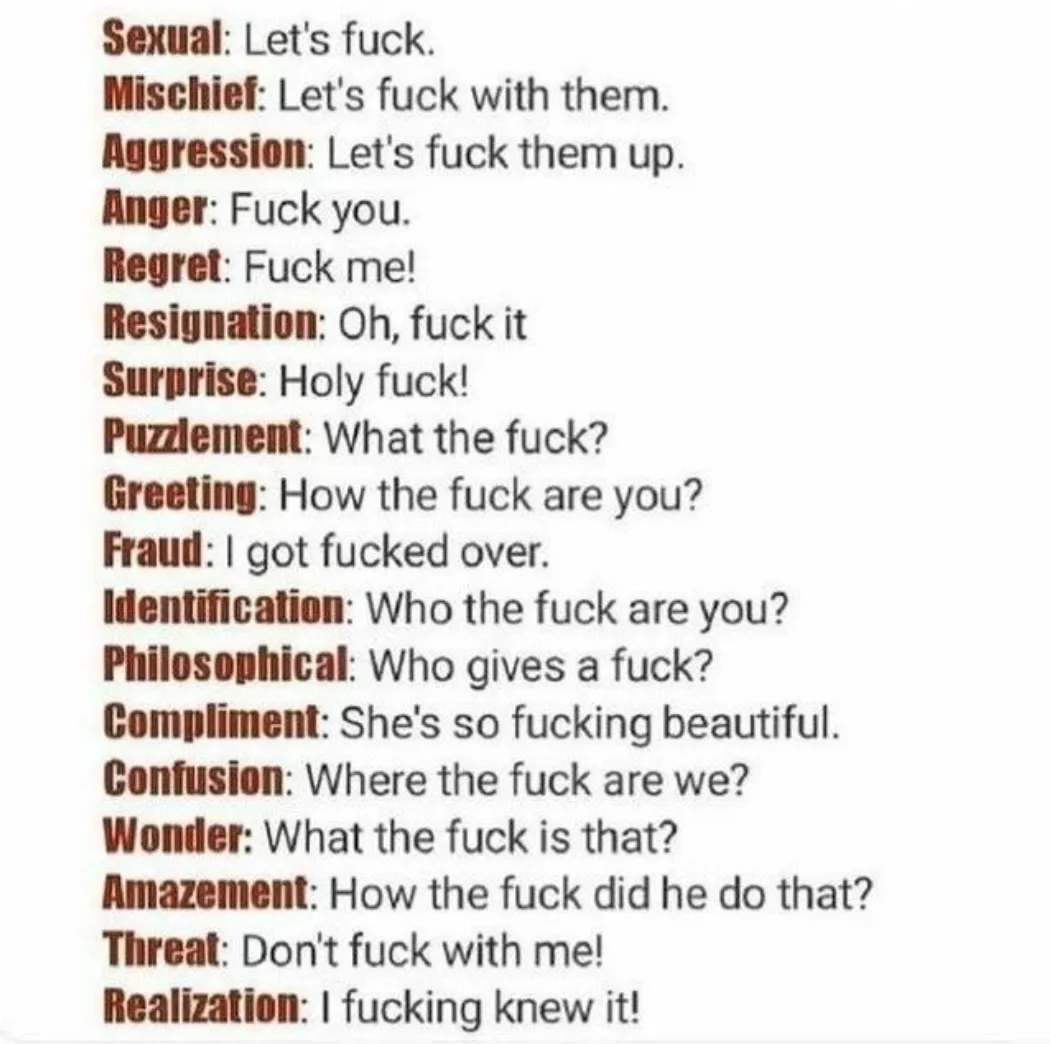I was sitting at a cafe when a child that looked like a 5 year old said, “What the …….”. She paused, then looked around her. Her parents and some people nearby laughed. Clearly they thought it was cute. The child was cute but not her language. She was confident and precocious. It seemed as though the child had done this before and received the same reaction - so she looked around eagerly anticipating the reaction she would receive in public.
Many children are precocious when they are young. They do say the darndest things at just the right times. Lots of wisdom can exude from the lips of kids and we enjoy it as adults. However, sometimes, it is not adorable language at all. Most often children cannot be blamed - it is hard to prevent them from being exposed. They are certainly paying attention to their environment.

Anecdote 1
When my son was about 11 years old, he attended a birthday party out in the woods. When I went to pick him up, there was a boy who was very upset that someone had hidden his rucksack. He had a right to be annoyed. However, the number of expletives which exuded from his mouth as a result was shocking and unnecessary. There were so many that nothing made sense any more. It sounded unintelligible and attention seeking. It was not just to express anger anymore - it was drama.
The most versatile word
Some say the f-word is the most versatile word in the English language. In society, there seems to be a shortage of expressive words. The f-word does a great job of filling in the blanks when the user's brain is equally blank or because it's become a normal word in the vocabulary of some people. The word has crossed cultural and international barriers and it has found its way into many sub-cultures.
The f-word is unique
Comedian George Carlin explains the uniqueness of the f-word - funnier than anyone else possibly could - in this YouTube video.

List of how the f-word is used
I am sure the reader finds this list interesting and factual. However, you might agree that the usage is more fitting for adults - not children. However, can children help it when there is also a long list of euphemisms used by most adults?
I have used one already - but there are others:
the f-word, f-bomb, frick, fricking, fork, fug, fugging, foxtrot, WTF (or whiskey tango foxtrot) d’fuq, effing, eff, etc.
Oh my goodness - I am sure the list could be longer. No one is fooled however as everyone knows that the user just wants to use the favourite four letter word. These euphemisms are seemingly less taboo and sometimes heard in formal settings but they are still a close resemblance to the original.
It's not easy for children when it seems like adults are having so much fun.
Children become confused when they see adults watching tv programs filled with f-bombs or hear them use the word so easily and freely. However, children will understand that not everything that adults do or say can also be said and done by children.
Anecdote 2
I am reminded of when a mother told me, “Lighten up MoMoGrow”. She said it after the following scenario.
It was a Friday afternoon. The kids returned home and with no after school activities - they were just relaxing at home. After a while the doorbell rang. I was in the kitchen but could not hear any footsteps heading towards the front door - so I decided to go. However, my then 7 year old daughter, Sara, arrived first. We have a camera and intercom system at the door. We saw Ben, the 9 year old friend of my son, Matt on the visor. My daughter spoke via the intercom.
She said, “Hello Ben”
He replied, “Is Matt home?”
She said, “Yes, he is.”
Sara was just about to press the button to let him in when he said,
“Why the f&#% did you take so long to come to the door. You are f&#% -ing slow!”
My daughter looked at me in shock with huge eyes. She asked me,
“Should I let Ben in, Mommy?”
I said, “Yes.”
Now she looked at me even more surprised because she knew our house rules.
I remained in the hallway to greet Ben upon his arrival. He said very cheerfully,
“Hello MoMoGrow!”
He continued walking in the direction of my son’s room. He had visited so many times he knew that he was allowed. However, this time I said to him in a very calm voice,
“Sorry Ben you cannot see Matt today because I do not like the way you spoke to Sara.“
He looked disappointed, then asked, “What do you mean?”
I explained, “I heard what you said to Sara. As you might know, swearing is not allowed in our home.”
Ben smiled.
I then added, “Unfortunately, you need to go back home.”
He shrieked, “Whaat?!”, as he stood staring at Sara and myself in amazement.
By then Matt had appeared from his room and realised what was happening.
Ben asked, “So I really need to go home?”
I replied, ”Yes.”
He looked at Matt, shook his head then left.
About 15 minutes later, I received a call from Ben’s mother. She said she was surprised to see Ben home so quickly and thought that I overreacted. As I mentioned above - I was told that I needed to lighten up. She told me that because English is a second language for Dutch children - they consider the f-word or any other English swear words as a joke.
I kept my response short.
I said, “I think we'll need to agree to disagree. I found Ben’s interaction with Sara very unpleasant. I teach my children to not swear so I could not condone his behaviour”.
We did not discuss the matter any further - on the phone or afterwards. (Our boys are now teenagers and are still friends).
I did not agree as I believe that most older children know exactly how and when to use swear words. Most use it exactly as expressed in the list above - therefore like adults. I could have just rolled my eyes and ignored Ben's language because it was not my child who was swearing. However, I found his manner offensive and could not overlook it. I had to handle things my way. By sending the child home hopefully he learnt at least one thing - i.e. every home has their own rules.
What do you think? Did I react too harshly by sending 9 year old Ben home?
Why children swear
Irrespective of whether children hear swearing at home or not - depending on the age - they might swear to:
- Get a reaction from their parents or others
- Imitate others. This is done by really young children who are learning and trying out new words. They do not totally understand the meaning of the words until they receive a reaction.
- Fit in with their peers hence having and maintaining their social circles.
- Emulate adults or what is seen on the tv or social media.
- Express themselves as they like the word(s) and it becomes their word(s) of choice to convey various emotions(like some adults).
What can be done about it
Every family will handle this matter the way they deem fit. However, these are my thoughts regarding what can be done.
- It is best to remain calm in order not to elicit a behaviour opposite to what one wants to achieve.
- For very young children it can be easily explained that certain words - not only swear words - are not nice or good words/choices. Children will understand that words are powerful and that feelings can be hurt by choosing certain words or terms.
- Parents are role models for their children. It would be helpful if parents “practice what they preach” especially in front of their children.
- As children are influenced by media and their world outside of their home, parents can take some time to speak to their children and clearly understand why their child(ren) are swearing.
- Parents can offer guidance by providing alternative words or terms which can help children to express themselves. This will be better than punishment.

a childhood drawing of my daughter
From the mouth of babes - there is ultimately no cuteness about the f-word or other swear words. Children are not yet adults who can freely make their own choices. As with other aspects of their development, children are young and innocent and need to be guided and told what are acceptable words and what’s not.
All photos are my own.
The stories are real but the names are not.

